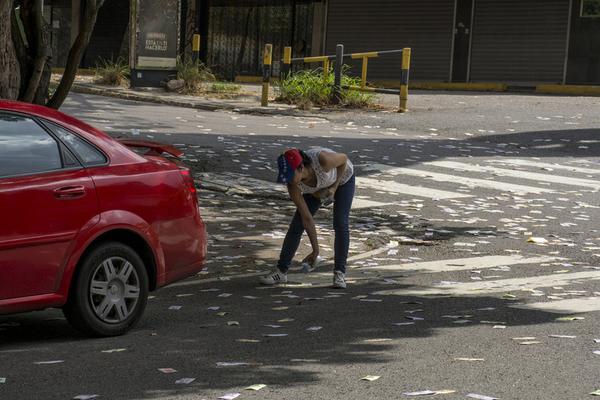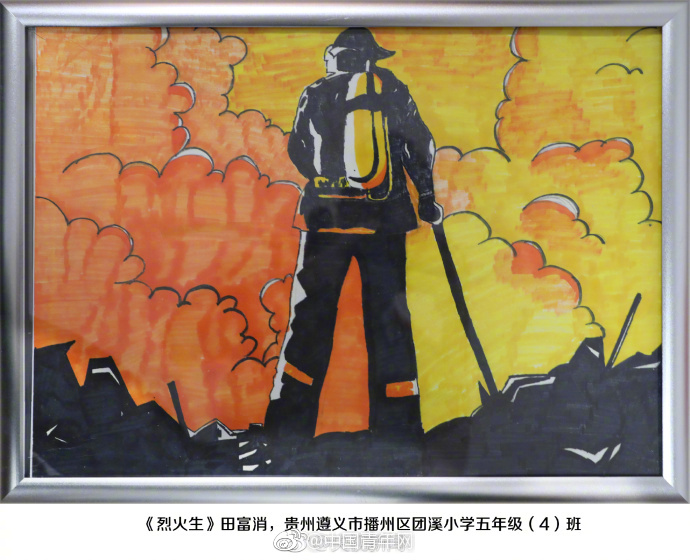Gavin Grimm hopes his lawsuit will be a victory for all trans students
Every day of Pride Month,Mashable will be sharing illuminating conversations with members of the LGBTQ community who are making history right now.
Gavin Grimm was a 15-year-old high school sophomore when the Gloucester County School Board adopted a new policy, in 2014, preventing him from using the bathroom that corresponded with his gender identity.
Until that moment, Grimm, who is transgender, had used the boys' bathroom at Gloucester High School without incident for several weeks. But the Virginia school board's decision required Grimm to use an "alternative appropriate private facility," ultimately forcing him to visit newly constructed single-stall restrooms. Desperate to avoid the stigma of using a bathroom meant specifically for him, Grimm tried to skip going to the restroom for entire school days.
By summer 2015, Grimm decided to sue the Gloucester County School Board for discriminating against him on the basis of sex, and the ACLU filed a suit on his behalf. Four years later, that case is still playing out in the court system. Grimm, now 20, is a college student and transgender rights activist. He's hopeful that his legal challenge will ultimately result in a court decision that prohibits public schools from discriminating against transgender students.
SEE ALSO: Snapchat's 'gender-swap' filter exposes the internet's casual transphobiaGrimm's case cites federal non-discrimination law passed in 1972 that is meant to protect students from unfair and unequal treatment related to their sex. Several court decisions have held that the legislation, known as Title IX, as well as the federal Constitution, protect students facing discrimination because they are transgender, but opponents argue that's not the case. That question is at the heart of Grimm's case.
In the meantime, the political climate has shifted radically since Grimm attended high school. In 2016, the Obama administration made clear in guidance to public schools that Title IX applied to transgender students. The Department of Education also issued recommendations to help administrators support transgender school children.
The Obama-era guidance, however, was revoked by the Trump administration in 2017. Following that decision, the Supreme Court declined to hear Grimm's case because a previous ruling relied on the Obama administration's directive. Last year, the Department of Education announced that it would no longer investigate or take action on complaints filed by transgender students concerned about their school's bathroom-use policies. The trial for Grimm's own lawsuit has been postponed pending a July hearing in which the judge could decide the outcome.
Grimm spoke with Mashable about what gives him hope, what advice he'd offer to transgender kids facing similar challenges, and why his legal battle has brought him joy.
The interview below has been edited for length and clarity.
Mashable: This legal battle has been ongoing since the school board adopted its policy in December 2014. You’ve graduated high school and are now attending college. What has kept you going throughout these years?
Gavin Grimm: Well, there’s been a few different things. I would say maybe chief among them being the support from the ACLU. I really have been continuously blown away by how important it is to them that I am safe before anything. That makes suing the school you’re also going to, I would say, more manageable, easier, if you have that kind of support behind you.
But then also the other thing I would say [is that] once I realized the fight was not about myself necessarily — when we were going to go to court and the implications would be wider than just myself — it sort of stopped being about me. Of course I wanted a resolution before I graduated, but it really wasn’t because I wanted to see the fruits of it. It was just because that felt like it should’ve been a reasonable timeframe to decide that what was going on was wrong. What kept me going, I suppose at that point, was just the knowledge that my actions had the ability to impact -- in a positive way -- the lives of other trans people that come after me. And so from that point, that’s sort of been ... one of the biggest things on my mind.
Mashable: This process forced you to defend yourself in public to adults who questioned your gender identity and, as you put it, also bullied you. How have those experiences shaped you? [Editors' note: The below video features Grimm speaking at a school board meeting in 2014.]
GG: I might say unfortunately that those experiences certainly shaped me, but for me to get to a place where I was a person capable of that kind of self advocacy, I feel like that story starts a lot earlier. Really, beginning in kindergarten, ever since I entered the public school system, not only was I really, really horrifically bullied so much that I had to leave public school more than once, but the adults in my community, or in my schools, were not protecting me, and more seriously, were not showing an interest in protecting me. So I developed a sense of if, 'I’m not going to do it, nobody else will,' years before the time of that [school board] meeting. That’s what I kind of brought with me on my shoulders, this sense that I was the only one that was going to be willing to stand up for me.
Of course I know now that there’s many people willing to stand up for me, and on my behalf, and with me, and beside me. But at the time, that’s very much how I felt. I felt very alone, and I felt very much like I was the only person who was going to be willing to raise my voice on my own behalf. That was a character [trait] that had already been present, but I think in establishing that was something I could do ... I do think that changed a bit with how the dialogue developed and how it evolved from there, because people spoke to me, rather than speaking to my parents or through somebody else.
I became the person who was sort of, not necessarily on the ground, but I was the one who was carrying my voice and telling my story, which I think was really important. I think it was impactful that it was heard right from the mouth of the person who was having those experiences. I think perhaps if I hadn’t stood up at that meeting then, maybe [things] would’ve played out differently.
Mashable: Protections for transgender school children have shifted greatly since you were in high school. Can you describe what it feels like to go from having, in the broader sense, the support of a presidential administration and then having an election change all of that?
GG: I don’t think anger is enough. I think to correctly impress [upon people] my sense of core anger, sadness, disappointment — not necessarily surprise — to articulate that, I don’t know that I even could. There’s just such a deep sense of utter and complete failure in terms of the trans kids that are affected by that rollback. I mean I was; the Supreme Court rejected my case after those guidelines changed. Even then, I was one of the least affected because I wasn’t still in school. I am horrified, utterly horrified, that that which had been given, which had been long overdue to be given, was taken away so immediately and so without regard and concern for the life and well-being of the children that it affects. I think that basically summarizes how I feel about that.
Mashable: When you talk to transgender youth about their experiences now that the Obama-era guidance has been rescinded, how do they describe their life at school?
GG: I haven’t had any conversations with other youth about that topic specifically, but what I know of the experience of many trans youth in public school is ... especially in places that are more conservative, the kind of background of the trans experience in those places is one that includes fear and uncertainty. That I hear echoed time and time and time again with people that I talk to either about their former high school experience in recent years, people that are 19 or 20 like myself, or older children who are still in school. That’s pretty much a universal response now that I’m hearing, that they’re afraid and they’re uncertain about what their rights actually are and if, or not, they’ll be upheld.
Mashable: Not every transgender child subjected to the discrimination you experienced will choose to or can challenge or sue their school board or district. What advice would you give any transgender child subject to this type of discrimination?
GG: I have privilege that I cannot ignore both in when I move through the world as a white and cis passing man, but also as a person who has the ability to access the aid of the ACLU. It required, granted, not much on my part. They did all the heavy lifting and they’re awesome, but if I didn’t have parental support, I would not have been able to access support from the ACLU. Even beyond parental support, if I didn’t have parents willing to go to literal court on my behalf, this is something I would not have been able to access. I recognize and I think about often how my path is inaccessible to many people — to many people that’s just not an option. I will say, of course, if your rights are being violated, the ACLU is not a bad place to start. But that doesn’t work for everybody.
Tweet may have been deleted
Unfortunately, sometimes people are in school systems where their options for challenging transphobia within the school are fairly limited. In cases like those, what I say first and foremost is safety first. Sometimes we have to be advocates for ourselves and sometimes that means saying that we need to go to a different school, or sometimes it means saying that we need to do something else. I did online school for a portion of time, but again, not everybody can leave their school district. I mean that also requires a certain amount of parental understanding and support. I guess really my advice just comes down to safety first: Your safety is top priority. And what you have to do to keep yourself safe, I would say to pursue that as far as you can and to not apologize for that.
Mashable: That’s such important advice...Do you have thoughts along those lines on helping children that are facing the challenges you faced stay optimistic if they can, to stay strong within themselves?
GG: Especially in terms of trans youth, regardless of how a school may be treating you, regardless of what kind of feedback you may be getting, even from people in your personal life that may be negative, who you are is not something that anybody can take away or change. They can force you to wear clothes that aren’t right. They can force you to use a name that’s not yours, but only for a limited amount of time. Eventually that situation will be different and you’ll have the ability to create the life that you never dreamed you’d be able to have. And it’s totally worth it. Again, always safety first, but there is always space to hold for yourself, to be yourself, even if that’s just online, even if that’s just in a private diary you’re writing in. Try to find places and people with whom it is safe to share your expression and share who you are, and then try to remember that those spaces are there and that they’re waiting for you, and one day everywhere will be a space like that.
Mashable: Activism and fighting for your basic rights can be really hard but it can also be joyful. What, if anything, about your experience has brought you joy?
GG: So much of it. Almost all of it has brought me joy, if I’m going to be completely honest. I find joy in exercising my legal rights. I find joy in being part of the civil system. I find joy in being able to see a tangible change in the world that has resulted from an action I have taken. But more importantly, and more regularly, I find joy from the people who come to me and tell me [my] story was uplifting or impactful.
"Just everything about this process and everything that has resulted in this process, for the most part, brings me some manner of joy."
Part of what I do now is I speak at locations, including schools. This week I’ve spoken to two schools. Usually when I speak to schools, especially elementary and middle schools, afterwards I always have one or two kids that like to share. They’ll share some fact about their family, like, ‘My mommy is a lesbian,’ or ‘I’m transgender too.’
The fact that I’ve created a space that makes them feel safe to share that, just through the power of sharing who I am, I can’t even describe the joy that brings me, and the joy it brings me to even have the ability to share the beauty of my [identity] and the trans identity with young people. Just everything about this process and everything that has resulted in this process, for the most part, brings me some manner of joy. Even the bad things are indicative of my ability to participate in the legal process and my civil liberties in America. At the end of the day, that brings me joy, too.
Read more great Pride Month stories:
Explore Stonewall National Monument's digital makeover and add your own story
Iranian activist wants to give every LGBTQ refugee a new chance at life
The best YouTube videos to help you come out
Featured Video For You
The history of Pride
 推荐阅读
推荐阅读 热门话题
热门话题

